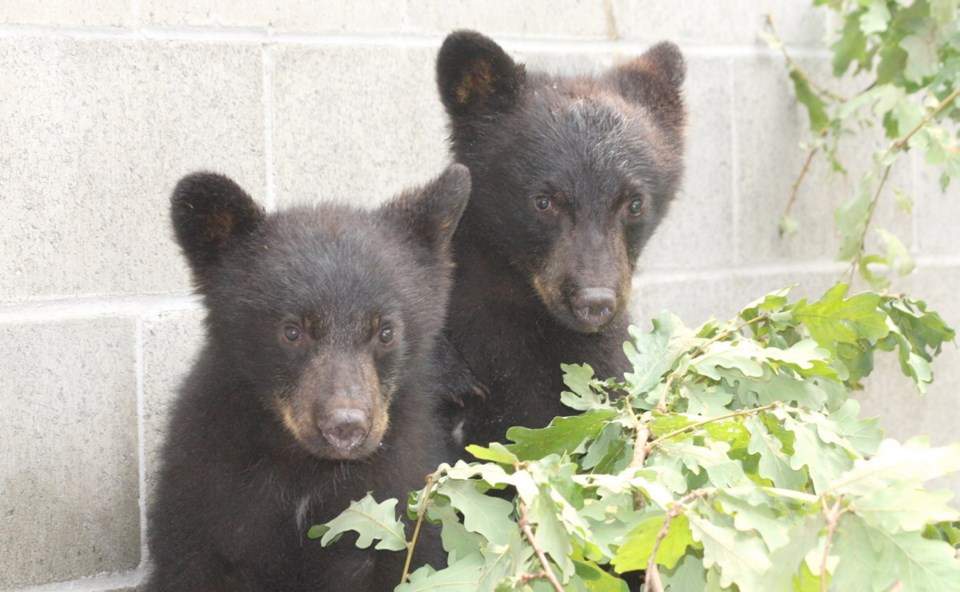The B.C. government has ordered a wildlife rehabilitation centre to put GPS collars on two controversial black bear cubs spared death by a conservation officer last year, to find out if they get involved in human conflicts upon their release back to the wild.
The non-profit North Island Wildlife Recovery Centre, which has no experience with radio-collaring bears, is also being ordered to pay the full costs of the collars.
“They want them collared and we have to pay, so that’s fun,” Julie Mackey, the centre’s wildlife manager, said in an interview. “They’re $5,000 to $6,000 a collar, so it’s not a cheap program to take on.”
The centre welcomes public donations to help pay for the collar program on its website, niwra.org.
The Conservation Officer Service faced international criticism following the suspension of officer Bryce Casavant for refusing to kill two eight-week-old black bears cubs on July 5 near Port Hardy on northern Vancouver Island.
The mother was killed, but Casavant argued the cubs were too young to be conditioned to human food. He left the Ministry of Environment for a job as a natural resources officer based in Port McNeill.
Ultimately, Mackey would like to see a larger study of more radio-collared cubs over the longer term to provide more accurate information on bear movements after release, but the organization does not have the capacity to take that on.
“They’re interested in these two and not the other ones,” she said, noting she has a total of eight cubs under her care.
“I guess because these ones got so much press and media, they want to know. They’re interested in where they go, if they return to a populated area.”
Steve Thomson, the minister of Forests, Lands and Natural Resource Operations, refused to comment.
The cubs are scheduled to be released to the wild this summer or fall. The collars would transmit data on the bears’ movements by GPS and would be designed to fall off later without the need to recapture the cubs, Mackey said.
An environmental group says it is suspicious of the provincial government’s action, arguing it is unusual and could potentially lead to the animals’ destruction.
Chris Genovali, executive-director of Raincoast Conservation Foundation, said: “Our concern is that the two cubs are effectively being marked for death out of some sort of ‘institutional spite’ by the province as a reaction to the bear cubs being initially saved and all the resulting controversy (and bad publicity) the province endured.”
Genovali said he is also concerned about the North Island Wildlife Recovery Centre’s lack of expertise with collars.
Ministry official Greig Bethel confirmed it is “not common practice” for black bear cubs to be fitted with GPS collars, but said that all grizzly cubs are collared before release.
He said the two cubs “will be treated as any other bear would be once put back into the wild.”
While hazing is an alternative to killing when a bear gets into trouble with humans, bears are not relocated if they come in conflict with people, he noted.
Bethel confirmed the collars “will be sourced and paid for” by the recovery centre, and that the information provided will be emailed to a generic account that can be accessed by both the centre and ministry staff.
He said the cubs might be released as early as June, but Mackey suggested that date could be premature.



